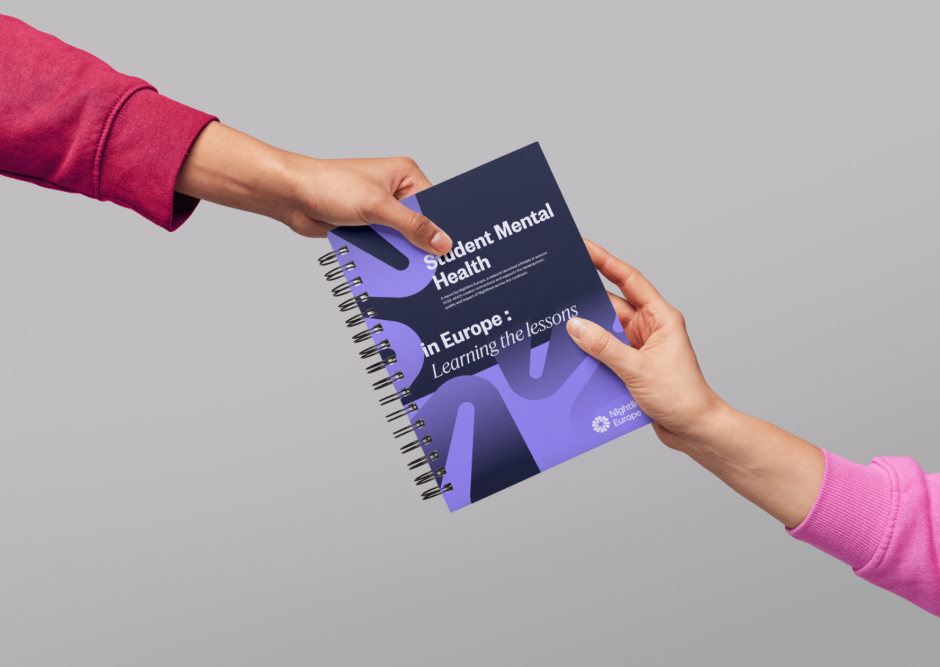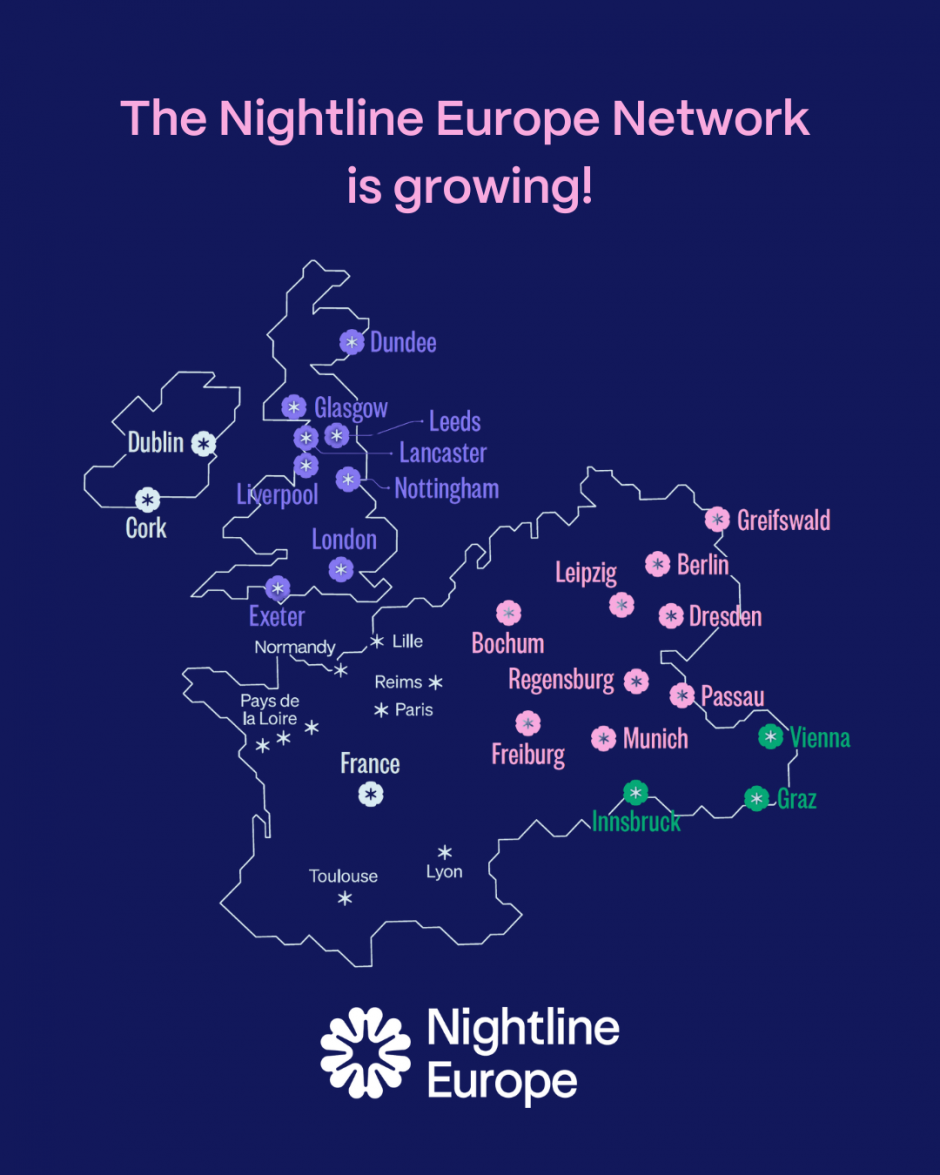Connecting Nightlines, Collecting Data Learning the Lessons from the new Nightline Europe report on Student Mental Health

Nightline Europe: Connecting Peer Support Services Across Borders
The idea of working across European Nightlines is not new. In the last few years, the three regional and national Nightline federations in Europe (Förderinitiative Nightlines Deutschland, Nightline Association UK and Nightline France) have discussed closer cooperation. Recognising the benefits of working together on student mental health to boost attention, investment and action on the issue at European level, the Nightline Europe network was officially created in autumn 2023.
Nightline Europe aims to:
- Connect Nightlines across Europe to share best practice, tools, and knowledge on student mental health.
- Support development and impact by implementing innovative projects, securing funding, and raising visibility.
- Improve awareness and action on student mental health as a pressing public policy issue.
By January 2025, the network had 29 members across tAustria, France, Germany, Ireland, and the United Kingdom.

An annual report on Student Mental Health in Europe
Learning the Lessons sets out the state of play on student mental health in Europe and explores what we know about prevalence, trends and action at European level. The report identifies an urgent need for improvement in terms of a holistic, coordinated and targeted response in understanding and responding to determinants of student mental health in Europe.
A unique aspect of this report is the use of data collected from the Nightline Europe network, based on nearly 15,000 calls and chats. Collaborating with other Nightlines has been very helpful in identifying larger trends:
Looking Ahead: A Blueprint for Action
By leveraging the data and experiences from its network, Nightline Europe sets out 7 recommendations for policymakers at European or national level as a blueprint for addressing the mental health crisis and fostering a healthier future for students across the continent.
These include clearer definitions of what we mean by the term "mental health", more and better data, investment in prevention as well as access to services, and paying closer attention to students' surrounding environments when taking action for their well-being on a daily basis.
With this report, Nightline Europe offers a roadmap to address student mental health challenges through data-driven strategies and cross-border collaboration. The findings not only shed light on the urgency of the issue but also underscore the importance of peer-led initiatives like Nightline in providing immediate, meaningful support.
Non-profit organisations, especially those led by students like Nightline Europe, are vital partners in this effort. By empowering these organisations and adopting the recommendations of the Learning the Lessons report, we can collectively work towards a brighter future for students across Europe.


